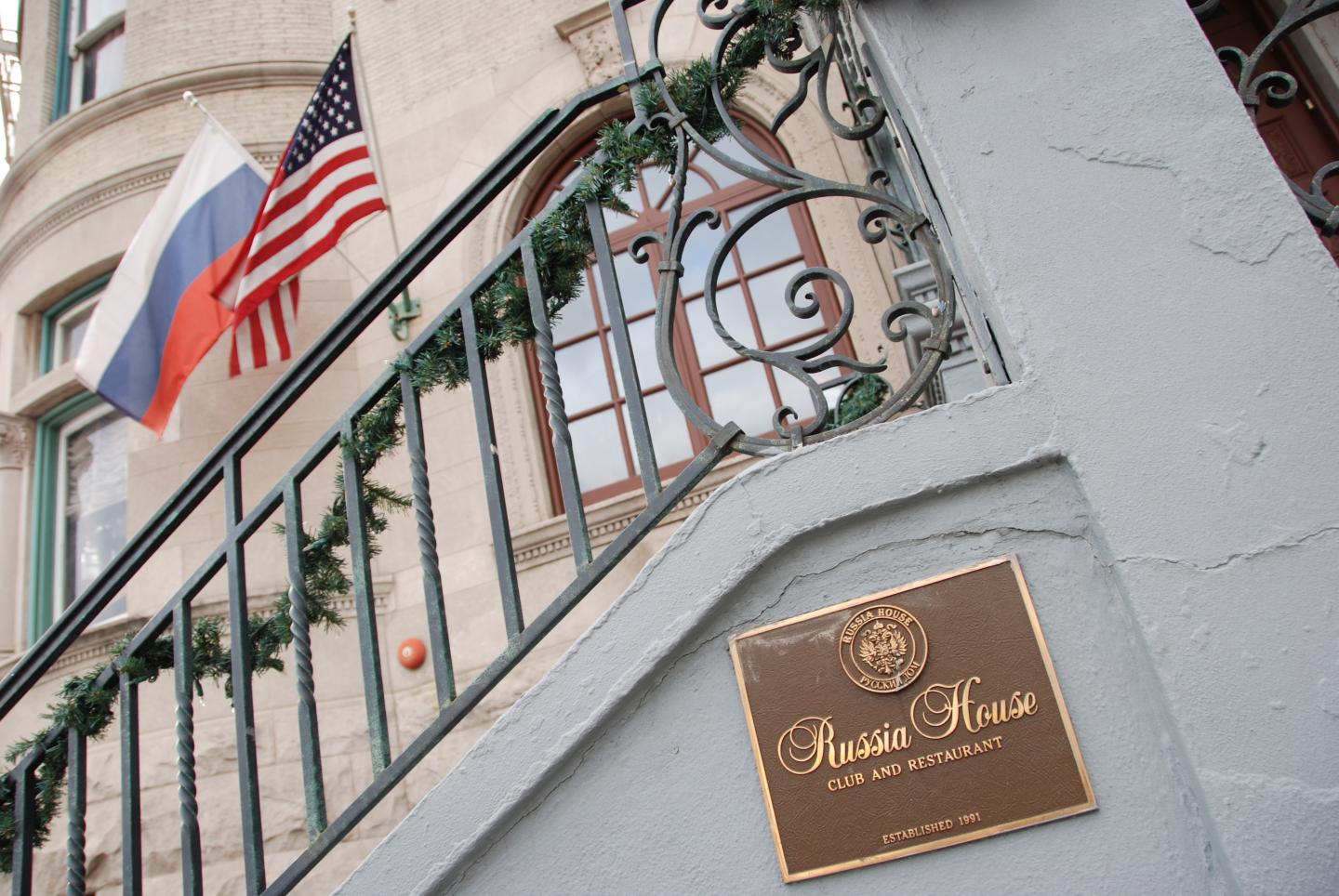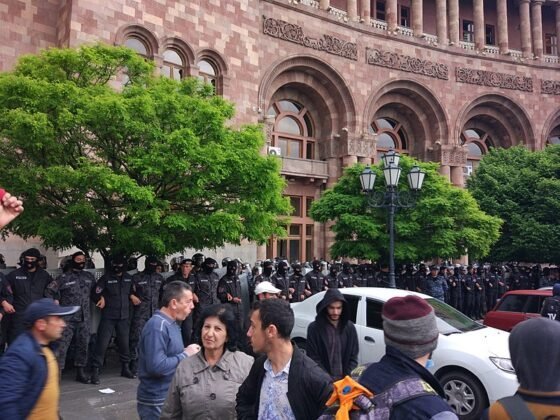(Newsweek) In the shade of Arlington Cemetery outside of Washington, D.C. on Tuesday, dozens of Americans and Russians sat on folding chairs and presented wreaths at a memorial to Elbe Day. The 20-year-old plaque commemorates the day at the end of World War II that American and Soviet troops met at the Elbe River in Germany, a moment signifying that they were gaining control of the country. Simultaneously, in Moscow, people gathered to mark the anniversary, too.
The commemoration is an annual event. But this year, Edward Lozansky, a Soviet-born American living in Washington, D.C., took credit for a video simulcast that enabled people in Moscow to see the group at the cemetery on a video screen. Lozansky considered the event this year’s version of his World Russia Forum, an annual conference he started almost four decades ago with the stated goal of promoting United States-Russia relations. […]
Yet even then, “not everybody was attending this,” said Andrew Kuchins, a senior fellow at the Center for Eurasian, Russian and East European Studies at Georgetown University’s School of Foreign Service who spoke at the conference. “There were some other good experts there, but overall it was a very mixed crowd and kind of unusual,” he said. “Let’s just use the word ‘eclectic.’” […]
Now the Russia House founder has developed a certain reputation among people in Russia policy circles. “Ed Lozansky is an unusual guy,” said Kuchins, from Georgetown. “I always had some questions about Ed.” […]
Read More © Newsweek











